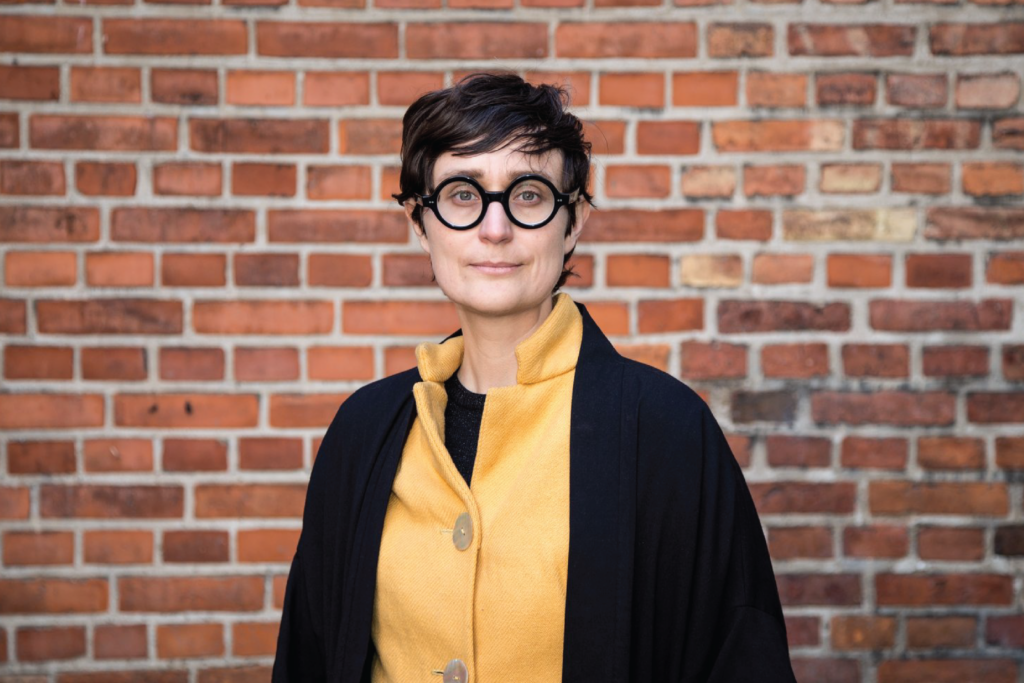DiNoBord is a research group that focusses on unpacking the contention between openness & security in the Nordic Region by looking at digital public surveillance practices at 3 state borders. We are collaboration 12 researchers with 7 different disciplines in 3 countries at 4 Universities.
Elena Raviola (PI)

Elena Raviola is Söderberg professor in Design Management at the University of Gothenburg. Her research explores the role of digital technologies and automation in the transformation of professional work and its organization. She has also a longstanding interest for media organizations and the changing dynamics of the digitized public sphere. She has an extensive experience of ethnographic methods and a passion for interdisciplinary projects.
Sweden

Matilda Arvidsson is an associate professor (docent) in international law and a senior associate lecturer in law and theory at the Department of Law, the University of Gothenburg. Her research interests are interdisciplinary and include AI and law, legal theory, international law, posthumanism and technology, as well as the embodiment of law in its various forms and in inter-species relations. She is an associate editor of Frontiers in Artificial Intelligence: Law & Technology, and part of the editorial board of Law, Technology and Humans.
He is active on X here.

Marie Eneman is Associate Professor/Docent in Informatics at the department of Applied IT at the University of Gothenburg. She has long-standing experience of conducting critical research on ethical issues linked to the digitalisation of society. Currently, she is project leader for research on law enforcement agencies’ use and organization of surveillance practices (e.g. CCTV, body cameras, drones, biometric technologies such as facial and object recognition, sensors, secret data interception).

.an Ljungberg is professor in Informatics at the department of Applied Information Technology, University of Gothenburg. His research interests include open source, open innovation, digital innovation, and institutional aspects of the digital society. His work has been published in a range of leading outlets in information systems and innovation research, including Information Systems Journal, the European Journal of Information Systems, Journal of Information Technology, International Journal of Innovation Management and Research Policy.

Amin Parsa holds a doctoral degree in public international law from Lund University. His primary research interest concerns the use of advanced digital technologies in the context of armed conflicts as well as border control practices. Currently, he is working as an assistant professor in sociology of law at Halmstad University in Sweden.

Bertil Rolandsson is professor in Sociology, at University of Gothenburg. His research investigates how societal values become organizing principles to professionals exposed to digitization initiatives. His studies comprise several professional groups, including the police, health care experts, and different public authorities. Central are the variety of legitimacy problems that must be dealt with due to new digital technologies.

Ulf Petrusson is Professor of Law at the University of Gothenburg and director of the Institute for Innovation and Social Change, School of Business, Economics and Law, University of Gothenburg. Ulf is interested in legal questions related to new technologies and has a long experience of innovation in the medical sector.
Denmark

Vasilis Galis is Associate Professor at the Department of Business IT at the IT University of Copenhagen. He has conducted research on the digitalization of the welfare state, borders, and on law enforcement, informed by qualitative methods. Galis has co-PIed the project DIGINAUTS: Migrants’ digital practices in/of the European border regime, and is presently the PI of two projects, Welfare after Digitalization and Critical Understanding of Predictive Policing. Galis research focuses on the social impact of digitalization in critical infrastructures and sectors of the welfare state.

Ursula Plesner is Associate Professor at the Department of Organization, Copenhagen Business School. She conducts research on digitalization and organization, mostly in a public sector context. Her work has been published in journals such as Organization, Strategic Organization, and International Journal of Management Reviews. She is the co-author of Digital Organizing – Revisiting themes in organization studies. She is co-PI of the research project Valuing Invisible Work: From efficiency ambitions to digitalization projects in practice.

Vasileios-Spyridon Vlassis is a researcher at the IT University of Copenhagen. He has a background in Mathematics and Philosophy of Science. His research evolves around bordering, policing, surveillance, and the digitalization of the state. For his PhD thesis, he investigated border guards’ practices and the registration of “irregular” migrants crossing to the European Union through the maritime Greek-Turkish borders. He has also conducted research on the Danish Police’s use of data integration platforms and their shift toward Intelligence Led Policing.
Norway

Bengt Andersen is a social and urban anthropologist (PhD University of Oslo, 2014) and is a researcher and research director at the Work Research Institute at the Oslo Metropolitan University. Andersen has done fieldwork in the USA and in Norway. Andersen has been involved in several transdisciplinary research projects. He has published on segregation, trust, integration, urban unrest, and architecture and planning.
He is active on X here.

Helene O. I. Gundhus is a professor and head of the Department of Criminology and Sociology of Law at the University of Oslo, and a professor II at the Norwegian Police University College. Her research interests include police methods and technology, police professionalism, crime prevention and security. She is currently involved in two projects funded by the Norwegian Research Council Algorithmic Governance and Cultures of Policing and Nordforsk Critical perceptives of predictive policing. Gundhus has published articles in various journals and co-edited the book Moral issues in intelligence-led policing.
Affiliated Researchers

Simon Fagéus
Simon Fagéus is doctoral student in Design at the Academy of Art and Design, University of Gothenburg. His PhD project, within the WASP-HS project “AI, The Social Contract and Democracy“, concerns artificial ways of seeing and investigates algorithmic vision through artistic practices. Simon is affiliated to DiNoBord.
.

Luna Secher Rasmussen
(RA in 2022-2023)
Luna Secher Rasmussen is a Research Assistant in the Technologies in Practice (TiP) group and an Assistant Lecturer at the IT University of Copenhagen. Her background includes a BA in Film- and Media Sciences from the University of Copenhagen and a MSc in Digital Innovation and Management from IT University of Copenhagenwith the specialization in Digitalization of the public state. Primary research interest are digitalization of states and societies, border studies, algorithmic governance, migration studies, sociotechnical practices, and human rights.